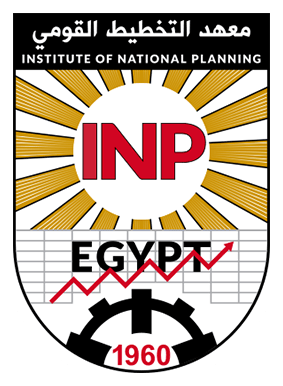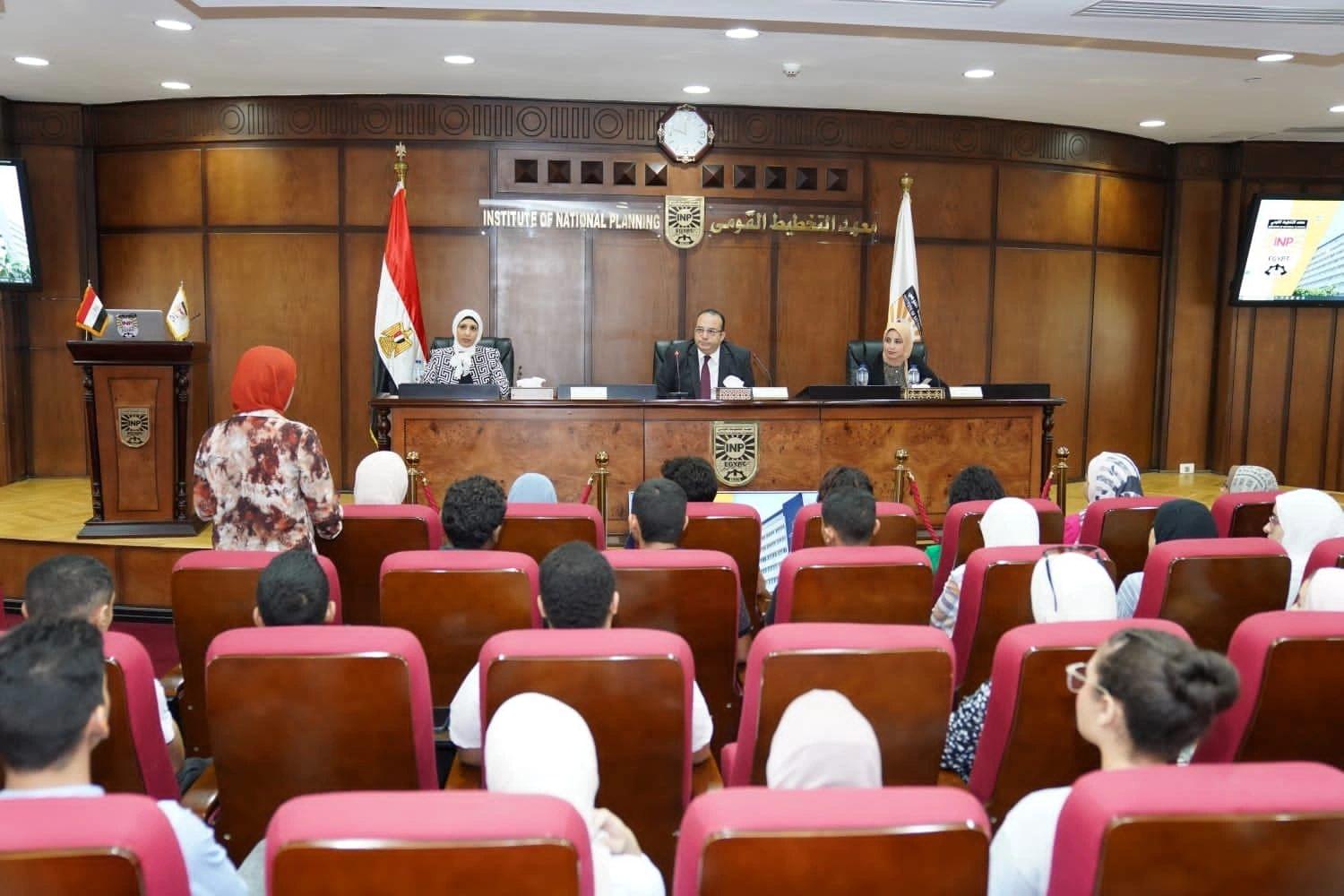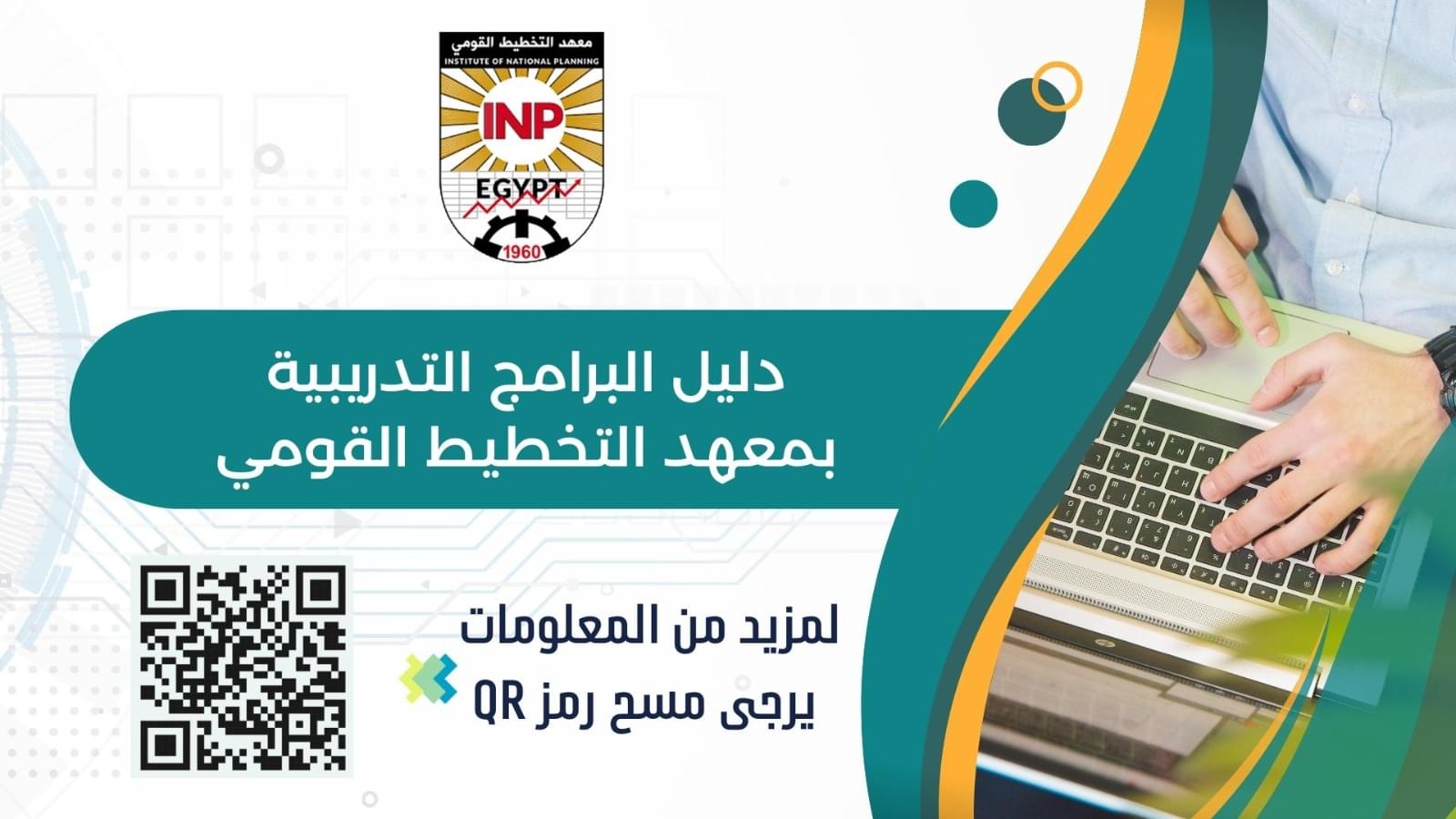| Title |
Aims |
Class |
Attachements |
URl |
| Institutional Economics |
This course aims to provide students with the basic knowledge of institutions’ theories, and types. This goal is achieved by studying the following: Introduction to Institutional Analysis; transaction cost; property rights theory ; contracts; institutional theories; the economic theory of the state; Trust, Societies and Culture; Institutions and economic development; political institutions and governance; states and markets; Institutional change. |
five class |
|
View |
| Applied Econometrics |
This course aims mainly to enable the student to use mathematical and econometric models to analyze and interpret economic data, as econometrics is one of the basic tools that estimate the components of economic theory and other sciences by giving them numerical estimates that bring them closer to reality. This course tends to combine economic theory with mathematical and statistical tools, by focusing on econometric modeling that the student can use to provide recommendations to decision makers. This goal is achieved through the student's study of the following: Introduction to Econometrics; Simple Linear Regression; Multiple Linear Regression; Testing Significance of Explanatory Variables; Testing Significance of the Regression Model; Multicollinearity; Heteroscedasticity; Autocorrelation; Using Dummy Variables; Measuring Elasticity using Regression Model; Faults in Model Determination |
five class |
|
View |
| International Relations and Development |
This course aims mainly at providing the student with the basic concepts of contemporary international economic agreements and blocs and their relationship to the local and global development path, and to crystallize the importance of international trade relations and their impact on sustainable development issues. This goal is achieved through the student's study of the following: The Global Economic System; The development of International Trade and Capital Inflows; Structural Changes in International Trade and Capital Inflows; Economic Regional and International Blocs and Coalitions; Poverty, Global Inequality and Social Development; International Migration; The Global Economy and Free Trade; International Finance and Foreign Direct Investment; Work and Employment in the Global Economy. |
five class |
|
View |
| Economics of Sustainable Development |
This course mainly aims to introduce the student to contemporary sustainable development issues and their concept, and the associated economic, social and environmental policies, in addition to studying structural reform programs and their effects on development issues. This goal is achieved through the student's study of the following: Economic Development Strategies and Models; Human Development and its relation to Economic Development; Methods to Finance Development; Human Development, Comprehensive Development and Sustainable Development; Economic Approaches to the new concepts of Sustainable Development; The Social Policies to attain sustainable development; The Environmental Policies to attain sustainable development; Programs of Economic Reform and Structural Adaptation and their reflection on inflation, unemployment and economic growth; Contemporary Issues in sustainable development. |
five class |
|
View |
| Economic Policy |
This course mainly aims to introduce the student to the various economic policies, their tools and the implications of using these tools in line with studying their impact on development goals’ achievements. This goal is achieved through the student's study of the following: Definition to Economic Policy; Goals to Economic policy; Fiscal Policy; Applications on Fiscal Policy; Monetary Policy; Applications on Monetary policy; Trade Policy; Applications on Trade Policy; Motives to Economic Policy Effectiveness; Programs of Installation and Structural Adaptation: Goals & Effects; Sources to Finance Development;
Applications of financing Development |
five class |
|
View |
| Economic Planning Methods |
This course aims to study the different methods of planning by introducing the student to the types, tools and methods of constructing and evaluating economic plans and different programming methods to achieve planning for economic development. This goal is achieved through the student's study of the following: Economic Planning; Economic Plan; Input /Output Tables; Linear Programming; Analytical Models of Growth Strategies; Analytical Models of development Strategies; Analytical Models of Income Distribution Strategies; Analytical Models of Tackling Poverty Strategies |
five class |
|
View |
| Economics of Human Resources |
This course aims to study human development indicators, concepts of social justice, sustainable development, and human capital development in all aspects. It also allows the student to study and analyze the various experiences of strategic planning in the field of human resources. This goal is achieved through the student's study of the following: Concepts of Human Development, Sustainable Human Development, Human Resources, Economics of Human Resources, Human Resources Competitiveness, Human Capital, Knowledge Capital; Human Development Key Performance Indices; Economics of Population and Labor Market; Economics of Education; Economics of continual Training and Developing skills and talents; Economics of Health; Economics of Knowledge, Creativity and developing the intellectual capital; Economics of Nutrition and Food Security; Environmental Economics and the quality of different lifestyles; Economics of Social Security, protection and social justice; Merging human development to the development strategy, medium-run and yearly development plans and government work programs; Experiences of Planning and Strategic Management to human development on the macro and micro levels. |
five class |
|
View |
| Economics of Finance |
This course aims at presenting monetary theories, evaluating the performance of the financial market, and defining the various sources of financing available to enterprises, whether they are internal in the form of shareholders’ rights or external in the form of bank borrowing, the stock market, or other sources. This goal is achieved through the student's study of the following: Introduction to the Financial Sector and its tools; Portfolio Theory; Financial Sector Efficiency; Demand on Financial Assets and Liquidity; Pricing Models: Classical models of Asset Pricing – Random Models - Arrow-Debreu Pricing; Bonds Pricing and the structure of interest rates maturity; Evaluation of shareholders’ rights; Derivatives: Pricing and usage; Risk Management: Theory and Practice; Decision making in uncertainty; Insurance Economics; Financial Crisis 2008; Financial Technology (Fintech); International Finance |
five class |
|
View |
| Environmental Economics |
This course mainly aims to study contemporary environmental issues at the national and global levels and their various impacts, and to understand the analytical tools of environmental economics. This goal is achieved through the student's study of the following: Basic concepts and analytical tools of Environmental Economics; Basic Concepts of Environmental Economics; Studying the analytical tools of Environmental Economics; Studying the quality of the Environmental life; Environmental Issues on the National Level; Environmental Issues on the Global level |
five class |
|
View |
| Economic History |
This course mainly aims to study the economic development of societies and address the most prominent events that affected the path of economic development worldwide, in order to extract lessons learned for their application in the future. This goal is achieved through the student's study of the following: History of Industrialization before 1870; History of Industrialization after year 1970 and the first industrial revolution; Political institutions and the government role after the first industrial revolution; Demographic Transition; Capital Accumulation, technological advancement and the use of natural resources; The cultural and social results of the first industrial revolution; The Economic history in the period between the World Wars; The Economic improvements after the second world war and its implications; The forth industrial revolution and its economic and social implications |
five class |
|
View |
| Economics of Energy |
This course mainly aims to study issues and policies related to energy and sustainable development by introducing models of energy usage planning in addition to the economics of depleted resources. To achieve this goal, the student studies the following: Energy and Sustainable Development; Supply of Energy and Economics of Scarce resources; Demand on Energy and its consumption entities; Functions of the global oil market, the Customers of that Market and Energy Security; Theories of Sources of Energy pricing in the short-run and long-run and income elasticity; Energy Local Markets organization; International Experience; Models of Energy Planning; Requirements to apply models of energy planning; Risk and Markets management in the future; Energy, Climate Change and carbon trade; Energy Sufficiency Policies; Policies to stimulate renewable energy usage. |
five class |
|
View |
| Knowledge Economics |
This course aims at acquainting the student with the concepts of knowledge Economics, its importance and pillars, and to grasp the difference between the knowledge Economics and the knowledge-based economy, and the basic factors that ensures the success of the knowledge Economics. This goal is achieved by studying the following topics: The concept of the knowledge Economics; The difference between a traditional economics and knowledge Economics; characteristics of the knowledge Economics; the concept of a knowledge-based economy; the concept of knowledge-based society; pillars of the knowledge Economics; In addition to Learning and Training )Human Capital) ;Information structure ; Creativity; The Economic Incentive and the Institutional System; Measuring the performance Indices of Knowledge Economics; The economic key performance index; The index of economic incentives and the institutional system, in addition to case studies such as Scandinavia and Asia and the case of Egypt |
five class |
|
View |
| Feasibility Studies and Project Evaluation |
This course aims to deepen the student's understanding of the various economic, social, environmental and financial aspects of feasibility studies and project evaluation. It also aims to familiarize the student with the scientific bases of projects’ economic feasibility studies, especially the foundations of project-related costs and returns analysis. This goal is achieved by studying: the meaning of the project, its lifecycle, and the reciprocal relationship with development plan ;the technical part to prepare projects; the Project place and size and virtual maturity ;Technology and methods of production ;the time table of implementation/ cost estimation of the project; the Costs of investment projects ;Taxes, fees and the international and local component of the project; Inflation and depreciation and debt burdens ; Financial analysis and economic analysis ;Indirect costs and benefits of projects ; Price corrections to productive resources, and for the traded and non-traded goods ;The cash inflows and the economic profit of the project ;The criteria of economic evaluation of the project ;Economic profit distribution on the beneficiaries. |
five class |
|
View |
| Government Budget and Plan |
The course aims mainly to deepen the student's understanding of the government’s budget ,its importance and the principles of budgeting, This goal is achieved by studying the following topics: Government budgeting (The concept ,Importance, Principles and goals ), Types of Budgeting ) Budgeting items – Programs and performance budgeting – zero-based budgeting), in addition to International Experiences ;The Egyptian government Budget and the different roles of authorities; Principles and basis of financial decentralization ; Analysis of Budgets and the government’s plan to development ; Analyzing the government budget proposal; The relation between the annual plan and the government budget. |
five class |
|
View |
| Development Policies |
This course aims to acquaint the students with different policies related to development. This goal is achieved by covering the following items: financial markets; monetary policy (concept, importance and tools); wages, price and productivity policies; economics of population and labour force; evaluating economic policies using general equilibrium models; The development strategy and the fundamentals of its success; The economic, social, environmental and regional dimensions of building strategies; development policies and their implementation mechanisms; institutional framework and governance; In addition to analyzing the sustainable development strategy: Egypt's Vision 2030; Comparison between the developmental experience of Egypt with other countries. |
five class |
|
View |
| Strategic Planning and Future Studies |
This course aims to acquaint the students with the strategic management and strategic thinking. Thus, be able to evaluate and apply strategic control; perceiving the relationship between future studies, sustainable development and long-term planning. This goal is achieved by studying: the concept of strategy, strategic planning, and strategic management, and strategic trend in light of competition. The external and internal environment of an entity; identifying and evaluating the various strategic alternatives and choosing the most appropriate one using quantitative tools (QSP - GS - BCG - SPACE - SWOT matrices), as well as formulating the strategy (models, variables and levels); Evaluating organizations in the era of globalization; The relationship of future studies to sustainable development and long-term planning; the roles of planning entities: government agencies, civil society and the private sector. |
five class |
|
View |
| Public policies |
This course aims at introducing the students to the field of comparative public policies by presenting different theories and methods, in addition to discussing many policies in various fields and Egyptian sectors to identify the similarities and differences in these policies. This goal is achieved by studying the following: The meaning of public policies and their objectives; public policy approaches and methodologies; analysis of public opinion trends; public policy making; analysis and evaluation of public policies; Preparing policy briefs and studying international public policy models; Public policies in Egypt. |
five class |
|
View |
| International Finance |
This course aims to introduce the student to basic concepts in international finance such as bonds, stocks and financial intermediaries; to enhance their ability to analyze financial performance and make appropriate financial decisions. This goal is achieved by studying the following: analyzing the performance of securities and portfolios, types of bonds and their pricing methods; yield curve analysis and its various theories; The role of the yield curve in predicating some economic variables; stock; financial derivatives and evaluating their role; The concept of market efficiency, Speculations and arbitrage in financial markets; Inflows Analysis; The Analysis of Causes and Effects of contemporary financial and monetary crisis and ways to fix them. |
five class |
|
View |
| Spatial Planning and Local Development |
This course aims to introduce the student to spatial planning and its impact on development plans. This goal is achieved by studying the following: Spatial planning mechanisms; spatial planning applications; The spatial dimension in development plans; modern technologies and spatial planning; GIS and spatial planning; Balanced spatial planning and development; Local development and regional planning; Analytical tools of regional planning; local management and local finance; Methods of preparing and managing the regional plan |
five class |
|
View |
| Sectoral Planning and Development |
This course aims to introduce the students to the importance of agricultural and industrial planning and its relevance to development. This goal is achieved by studying the following: Planning in the agricultural sector; Requirements, tools and obstacles for preparing agricultural development plans; monitoring and evaluation of the implementation of agricultural development plans; planning in the industrial sector; Requirements and tools of preparing industrial development plans and their obstacles; monitoring and evaluation of implementing industrial development plans; planning in the service sectors; Requirements for preparing sectoral development plans; services and their limitations; Tools for preparing service sector development plans; monitoring and evaluating the implementation of plans for the development of the service sectors; The interrelationships between the different sectors of the Egyptian economy. |
five class |
|
View |
| Social and Cultural Planning and Development |
This course aims to introduce the student to the link between social and cultural development and other development issues. This goal is achieved by studying the following: The basics of community development; the social norm system; Social Justice; cultural development; media and social media networks; smart knowledge societies; Creative industries, as well as social and cultural development issues such as youth empowerment, citizenship, and the most favored groups - people with disabilities; Illegal immigration and child labor. |
five class |
|
View |
| Environmental Planning and Development |
This course aims to acquaint the students with the concepts of environmental management and link it to environmental planning; to develop students' skills in dealing with environmental and global issues. This goal is achieved by studying the following: Environmental management and environmental planning; assessment of the environmental impacts of projects; the environmental impacts of development plans; Natural and environmental resources; In addition to the economics of the environment and natural resources. |
five class |
|
View |
| Governance and Development |
This course aims to acquaint students with concepts of governance and its relationship to development by referring international experiences in governance. This goal is achieved by studying the following: definitions and types of governance; Political ,Economic, Social, and Corporate Governance; governance philosophy and objectives; governance principles; levels of governance; governance implementation challenges; governance indicators; key players in governance; The role of governance in development; governance, transparency and anti-corruption; governance and administrative reform; In addition to studying international experiences in governance. |
five class |
|
View |
| Urban Planning and Development |
This course aims to provide students with the baseline of urban planning and its relevance to development. This goal is achieved by studying the following: urban planning theories; contemporary and future patterns of urban planning; foundations and elements of urban planning; The mechanism of preparing urban plans; Methodology for preparing planning standards for public services and public utilities; methodologies for defining urban strategies and plans; Mechanism for monitoring and measuring the performance of urban plans; Obstacles to the implementation of urban plans; Urban Planning and the Environment. |
five class |
|
View |
| Information Technology and Development |
This course aims to provide students with the baseline of the updated modern technologies and its relevance to development. This goal is achieved by studying the following: The updated information technology and development through studying digital economy and digital society; information technology and digital society; IT infrastructure; IT quantification; In addition to studying the modern technologies used in development, the Internet of Things ; Cloud Computing ; big data analysis; Artificial intelligence ; IT applications in development; The digital future (concerns and challenges). |
five class |
|
View |
| Entrepreneurship |
This course aims to acquaint student with entrepreneurship and develop creative and innovative skills in preparing a business plan for entrepreneur project. This goal is achieved by studying the following: Entrepreneurship concepts; entrepreneurship and small projects; generate ides for entrepreneurial projects; Entrepreneurship and development projects; Problems facing entrepreneurial projects; effectiveness of entrepreneurial projects’ activities; The external business environment for entrepreneurial projects; technological environment for entrepreneurial projects; Creativity and innovation in entrepreneurship, in addition to preparing work plans for the entrepreneurial project. |
five class |
|
View |
| International Development and Planning Issues |
This course aims to introduce the student to planning and international development issues and to develop the skills and knowledge necessary to analyze the situation on the international arena. This goal is achieved by studying the following: The global economy and trade liberalization; global political economy; industrial competitiveness and global transformation; international finance and foreign direct investment; work and employment in the global economy; poverty, global inequality and social development; international migration; environmental security and sustainable peace; gender planning in developing societies; Leadership in global development; human rights and development. |
five class |
|
View |
| Dynamics of Urban Planning |
This course aims to provide the student with the necessary knowledge to address urban planning problems through comparative studies and practical cases. This goal is achieved by studying the following: patterns of urban development; Analyzing the effects of urban development on development; urban planning analysis methods; urban land economics and public policy; Future cities and the smart growth;economic principles of building comprehensive urban models; Introductions to urban planning dynamics based on spatial networks; Applications to the basics of Urban planning dynamics on the basic planning elements; sustainable urban development; Comparative studies and practical cases. |
five class |
|
View |
| The System of Water, Food and Energy |
This course aims to provide students with baseline of water, food and energy system and the role of the interconnected approach of this system in achieving sustainable development goals. This goal is achieved by studying the following: determinants of increased demand on natural resources; Estimates of the increased demand of energy, water and food by 2030; the interdependence of water, energy and food systems; The United Nations goals to the International Development after 2015 to food, water and energy sectors, The importance of the interrelation between water, food and energy to achieve sustainable development goals. |
five class |
|
View |












